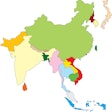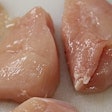A component of sesame oil, sesamin, added to fish feed may enable salmonid fish to produce the long-chain omega-3 fatty acid DHA from linolenic acid in plant oils, doubling fish feed production from available fish oil, according to research from the Swedish University of Agricultural Sciences.
Research team leader Professor Jana Pickova stated, "The fish fed on the sesamin diet had significantly higher levels of DHA, up by around 37 percent, compared with the control group on the non-sesamin diet." There were no adverse effects on fish growth or health.
Professor Pickova concluded, "If this work can be translated into commercial practice, we can significantly increase the amount of fish feed we produce from the fish oil that is sustainably available."

















